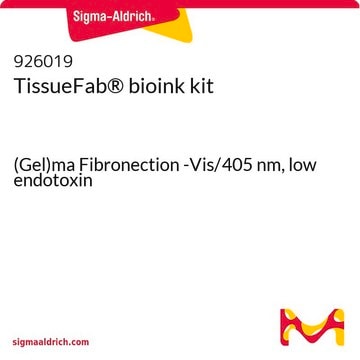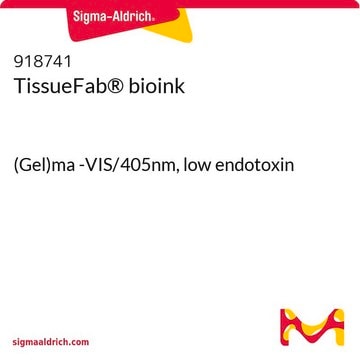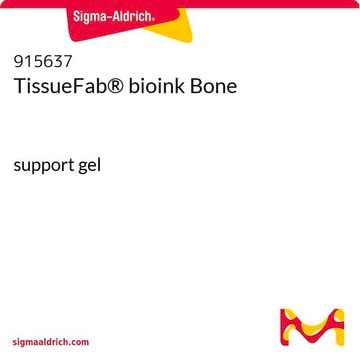919926
TissueFab® bioink
Crosslinking solution, low endotoxin
Synonym(s):
Calcium chloride solution
About This Item
Recommended Products
Quality Level
description
suitable for 3D bioprinting applications
sterility
sterile-filtered
form
viscous liquid
impurities
≤5 CFU/g Bioburden (Fungal)
≤5 CFU/g Bioburden (Total Aerobic)
<25 EU/mL Endotoxin
color
colorless to light yellow
particle size
0.1 μm
pH
6.5-7.5
application(s)
3D bioprinting
storage temp.
2-8°C
Looking for similar products? Visit Product Comparison Guide
Related Categories
Application
Packaging
Legal Information
Storage Class Code
12 - Non Combustible Liquids
WGK
nwg
Certificates of Analysis (COA)
Search for Certificates of Analysis (COA) by entering the products Lot/Batch Number. Lot and Batch Numbers can be found on a product’s label following the words ‘Lot’ or ‘Batch’.
Already Own This Product?
Find documentation for the products that you have recently purchased in the Document Library.
Articles
Bioinks enable 3D bioprinting of tissue constructs for drug screening and transplantation; select suitable bioinks for specific tissue engineering.
Bioinks enable 3D bioprinting of tissue constructs for drug screening and transplantation; select suitable bioinks for specific tissue engineering.
Bioinks enable 3D bioprinting of tissue constructs for drug screening and transplantation; select suitable bioinks for specific tissue engineering.
Bioinks enable 3D bioprinting of tissue constructs for drug screening and transplantation; select suitable bioinks for specific tissue engineering.
Our team of scientists has experience in all areas of research including Life Science, Material Science, Chemical Synthesis, Chromatography, Analytical and many others.
Contact Technical Service








